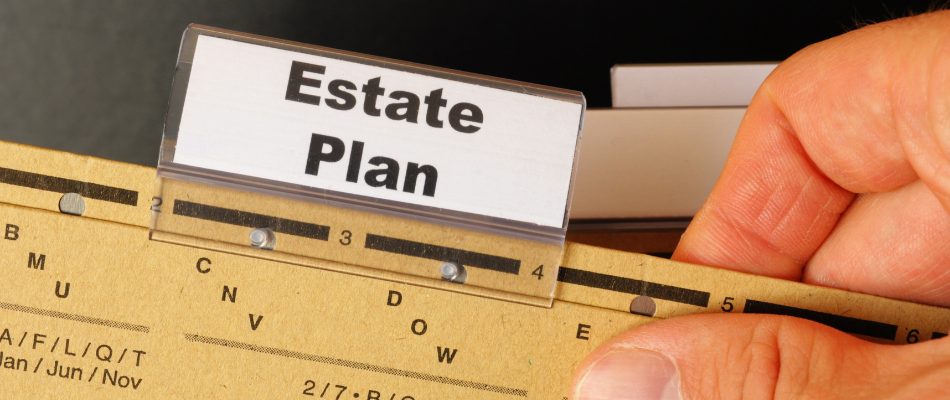- Keeping Lunch Boxes Healthy - September 14, 2023
- Chat GPT: The Future of Business Communication is Here! - February 16, 2023
- What are Cognitive Enhancers or Nootropic Supplements and How do They Work? - November 10, 2022
In Part One of this series on why it is important to plan for death, we considered what will happen if you die without a will and the risk associated with having no input on who will inherit from your estate. We also looked at why it is important to nominate an executor in your will and the significance a will plays in avoiding unnecessary family drama. Part Two of this series considers the importance of a will to ensure that your minor children are taken care of adequately should you pass away, as well as the cash flow consequences loved ones can face due to your passing and how to avoid this.


If you have minor children, it is vital to plan for how they will be looked after financially should you pass away. If minor children inherit from your estate, either intestate or in terms of a will, the Master of the High Court can direct that their inherited funds should be invested in the Guardian’s Fund, which is run and administered by the state. Money in the Guardian’s Fund is invested with the Public Investment Corporation (PIC) and interest is calculated monthly at a rate determined by the Minister of Finance, compounded annually on the 31st of March each year. When a minor turns 18, they can request that their remaining inherited funds and any interest received be transferred to them.
The Master of the High Court will also appoint a guardian that can claim from the fund all interest earned on the beneficiary’s inheritance as well as an amount of up to R250,000 to use for the beneficiary’s living costs and maintenance such as school fees, clothing, medical fees etc. Claiming these funds by a guardian will require a request from the guardian as well as proof of the needs of the minor, which can be a lengthy and time-consuming process.
Although the intentions of the Guardian’s Fund are honourable and good, in reality it is unfortunately not the best way for your children to be cared for after your death. As mentioned above, it can be difficult to access needed funds and since there is a limit on the amount available to withdraw for maintenance, it can often not be sufficient. A quick glimpse at recent news about the Guardian’s Fund also paints a picture of horror, as funds that have been approved for release sometimes don’t actually get paid out, leaving guardians and beneficiaries in cash flow difficulties. Another drawback of the Guardian’s Fund is that the interest earned in the fund often does not keep up with the rate of inflation, meaning that the inheritance will be worth less when the beneficiary can finally withdraw the funds, than when the funds were invested.
You can, however, avoid your minor child’s inheritance getting stuck in the Guardian’s Fund by setting up a testamentary trust in your last will. This trust will only come into effect should you pass away while your child is still a minor. This will give you the opportunity to appoint trustees who will take care of your minor child financially, giving them the power to invest the inheritance as you wish or at their best discretion and have guidelines of what can be used for what and by whom. A testamentary trust can only be established by your executor if it was part of your wishes in your will and it is therefore important to ensure that this clause is part of your will if you do have minor children.
Your accounts will be frozen, which could cause cash flow constraints.
At the moment you pass away, all your assets and liabilities become part of your estate. Until these assets are distributed to beneficiaries, an executor is the only person that may act on behalf of the estate and only the executor holds the power to perform any act in relation to these assets or liabilities.
An executor can only start acting as such once they have been appointed by the Master of the High Court. The process of being appointed by the Master can take anywhere from three weeks to three months, and even longer in some cases.
Banks are legally required to freeze all accounts once they are notified that the account holder has passed away and the bank account will form part of the deceased estate. As explained, only the executor will have the right to act on behalf of the estate and consequently only the executor can request a withdrawal from a deceased’s bank account, but for them to make this request they first need to be appointed, which can take time. In the interim, loved ones can be vulnerable due to cashflow constraints and the effects can leave them in a difficult position.
This risk can however be avoided by implementing either of the following two strategies: The first is to nominate your spouse as the only beneficiary in your will and the second is to make use of life policies that pay out to a beneficiary on your death. Both these strategies require planning and further highlight the importance of having a plan in place for dying.
If your spouse is the only beneficiary in terms of your will, they are allowed to make a withdrawal from your bank account before notifying the bank of the death of their spouse. This withdrawal must be recorded so that the executor can include it in the liquidation and distribution account as maintenance and funeral expenses as soon as they are appointed. If there are other beneficiaries in a deceased’s will, such a withdrawal is illegal as the person making the withdrawal will have no right to claim ownership of it.
The second way to create liquidity for your loved ones after you have passed away is by taking out a life insurance policy on your life and, very importantly, to elect your spouse, children or other financially dependent person, as the beneficiary of the policy. If no beneficiary is nominated, the policy will form part of the assets in the estate and those funds can also not be accessed by your loved ones until the executor has been appointed. Provided there are no unforeseen problems, such as death due to unnatural causes that could require post-mortem or inquest reports to be prepared, such a policy will normally pay out relatively quickly after your death to your elected beneficiaries.
While you are alive, don’t be an ostrich sticking your head in the dirt by avoiding to plan for your death. From this series it is clear that planning for death is an important responsibility to ensure that your loved ones are left in the best possible situation should you no longer be around to take care of them. Make it a priority to get your affairs in order before it is too late.
Read also:


